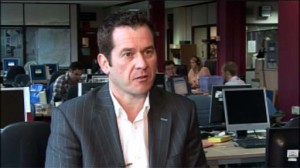Being honest, it’s going to be the least revealing and interesting as well and can I just say that I’m delighted that this is the case!
No one is stupid enough to think that our financial problems are gone just because we don’t get to read about wages being paid late, court actions for unpaid tax bills, transfer embargoes and “golden ticket” schemes any more. Compared to the years 2004/2010 though, there seems to be an air of competence and professionalism amongst those responsible for the running of the club now. This helps to ensure that supporters can concentrate their minds on the thing that really interests them, the team, without having to concern themselves too much with who we will have to sell next or what our Chairman/Owner said to the media this week.
There is still the matter of the Langston loan notes to be sorted out of course, but, contrary to what some “in the know” messageboard contributors would have you think, the forensic accountants hired to look into the loan agreement have not concluded their work yet. One of the more interesting things to emerge from Thursday’s EGM (see my previous post) was that the forensic accountants were not just concerning themselves with the loan itself, but also with how the situation arose whereby we could owe Citibank £20 odd million after four years, spent mainly in the lower divisions, of Sam Hammam’s stewardship. This is something that has always baffled me and no matter how much those who, amazingly in my opinion, still support a return to the club for the man try and explain it away, I just do not see it – the figures don’t add up and all of our subsequent financial problems have stemmed from this period.
The EGM also offered clues as to how some of the club’s other creditors are being dealt with – the loan from Ray Ranson’s company Sport Asset Capital was renegotiated last summer and no longer attracts interest, but it is still structured in such a way that it would be in City’s best interests to get it paid off as soon as possible as they get a bigger percentage of any player sales the longer it takes us to repay them. The PMG loan, which had been due to be paid in full in September, has been reduced to around £4 million and now has to be paid by May 2013, while loans from directors Michael Isaac and Steve Borley (through his company, CMB Engineering) have been reduced by £500,000 and £400,000 respectively.
In the cases of PMG, Mr Isaacs and Mr Borley the reduction in the money owed to them has come about because it has been converted into shares in the club and, with the same method being used by the Malaysian investors to help boost their shareholding to 49% (just below the level which would trigger an automatic buy out clause), the club’s total debt has been reduced by something like £9 million. Obviously, this is very good news, but with the May 2011 accounts expected to show a further substantial loss when they are filed at Companies House (possibly in December), it is anticipated by some, who know more about these things than me, that our debt will still be in the region of £30 million.
That’s something of a sobering note to end on and I think it does emphasise how dependent we are on the Malaysian investors because I’d genuinely be concerned for our future without their involvement. However, although you would think that their resolution could start to crumble if another season ends with us coming up short in the promotion stakes, there is little evidence around at the moment to suggest that this would actually be the case – the increase in their shareholding and the growing links between City and youth football in Malaysia certainly indicates otherwise. Overall then, the feeling I get is that TG and Gethin Jenkins (who, thankfully, only makes media statements when he has something worthwhile to say) are right when they claim that although there are still plenty of financial challenges to be overcome, slow but steady progress is being made and the future looks brighter off the pitch than it did twelve months ago.
